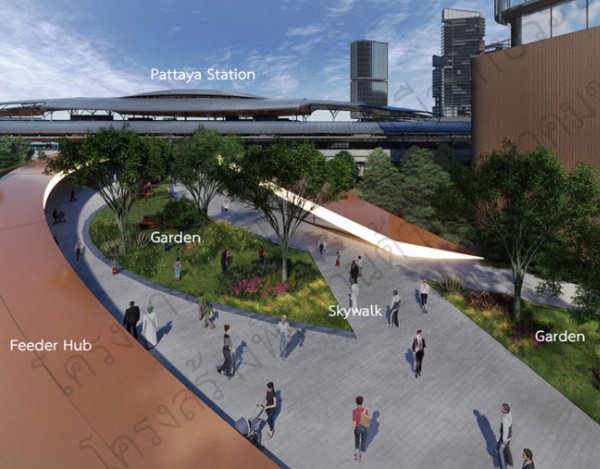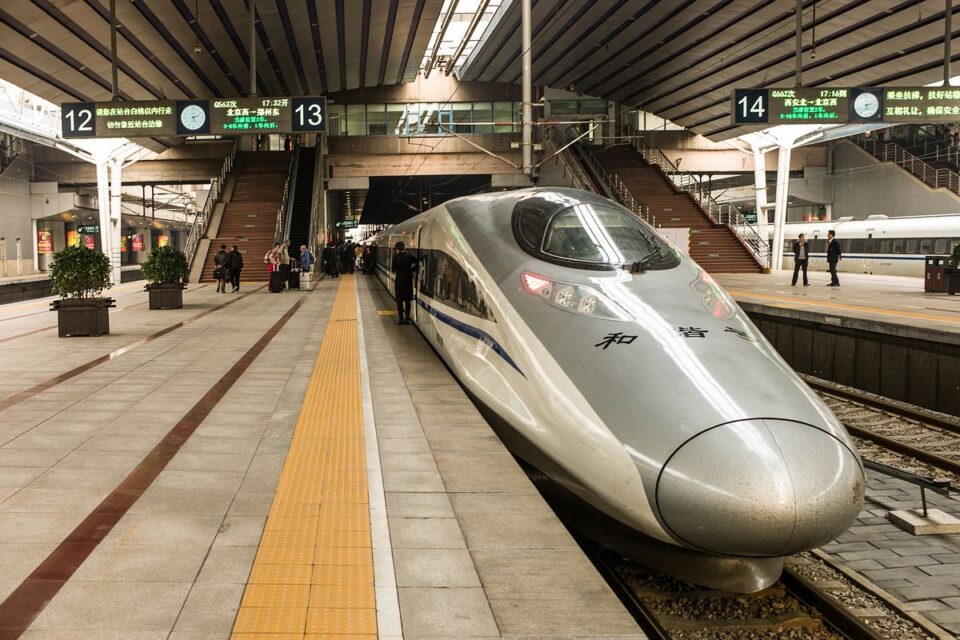Or has it been shunted into a siding?
Thailand’s authorities have been talking about establishing a high-speed train link between
Bangkok and the Eastern Seaboard for a long time now – since late 2010. But, is it really
happening? And, if so, when?
Some progress has been made, but to the north of the capital. In June, the Bangkok Post
reported the first phase will be completed by 2026. But that’s the section linking Bangkok with
Korat (Nakon Ratchisima) on its eventual way to Kunming in China.
Not much use to those in Pattaya, but it’s encouraging that at least something is happening.
I believe the rail link could give Pattaya an enormous boost:
Travel to the centre of Bangkok in less than 45 minutes. Good for commuters.
More office workers would consider having their main residence here in Pattaya.
It might bring an end to crazy holiday weekends on the roads in Pattaya if Bangkok
workers are already based here.
Property prices may well increase. Great news if already own property here.

Earlier this year the Bangkok Post published this rendering of how the new train station for
Pattaya might look. The proposals include condominium blocks and shops.
But, I need to add one big caveat – that the pricing of fares needs to be right for the high-speed
line to really mean good news for Pattaya.
I have seen a figure of Bt500 put forward as a possible fare for the Bangkok-Pattaya journey. It
was unclear if that was for a one-way ticket or a return. I should make it clear that this is by no
means a definitive sum and I apologise in advance if it proves wildly inaccurate. No deception or
scare-mongering is intended.
For the sake of argument let’s say the return trip would cost Bt1,000. I suspect tourists would
happily pay that. But I also believe that the Thais themselves will not be so keen to pay that sort
of amount. Parting with Bt5,000 a week or Bt20,000 a month for commuting sounds like an
offer they can refuse.
Of course, I’m making the assumption that a worker based in Bangkok would travel into the
office five days a week. Post-pandemic is that a safe assumption? Possibly not. If those five days
were reduced to, say, two would that make the rail outlay more acceptable? Maybe.
Bt8,000 a month for a two-days-a-week commute sounds more manageable. Much depends on
how good a salary that person earns. But, if that person enjoys frequent weekend visits to
Pattaya perhaps the thought of being permanently based in the coastal city and travelling up to
work two days a week would have much stronger appeal.
For many Thais the concept of train travel seems slightly alien. I don’t intend that in a
condescending way. It’s just that, up until now, rail travel has not been viewed as a convenient
form of travel. A train from Pattaya to Bangkok is scheduled to take just less than four hours.
Four hours for a journey which, on a high-speed train, would take about 45 minutes. Do the
maths, that means the high-speed service will be more than five times quicker than is currently
the case. Travel by road currently takes less than half the time of the train. Little wonder then
that few Thais are train travellers.
My wife from Korat, for example, claims she had never been on a train before she met me. She
has no reason to lie and, given the times quoted above, maybe there has been little incentive to
board one. It will be interesting to see what her attitude to travelling from Pattaya to her home
city will be once the high-speed line is complete from north to south. Sadly, I am wondering
whether the word “once” should be changed to “if”.
What can be reported about Pattaya and the high-speed train? Not a whole lot, unfortunately.
There seems little doubt that progress stalled when Thailand declared that it didn’t want rely
on Chinese money to get the system built. Predictions indicate that 2029 may now be the
expected completion date for the Bangkok-Pattaya section of the track – some 19 years after it
was first suggested.
The phrase “better late than never” springs to mind.

Dave Buckley
Dave Buckley is a correspondent of the Pattaya lifestyle magazine, Rem.





